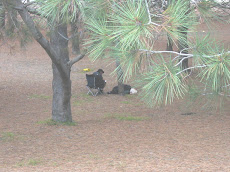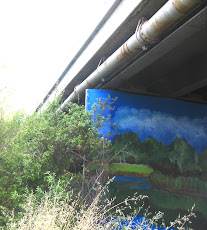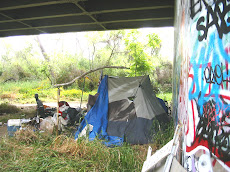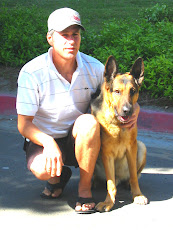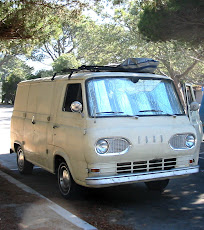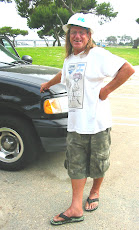It is late evening, and I am sitting in my truck in a parking lot. It has been one of those days in which past aggravations nag at me and cling like a dense fog. The loneliness of homeless life lends itself to wrong-headed musings; and as the night deepens, the lack of the physical presence of companions is felt even more keenly.
There is a sweetness to saying "Good night" to people whom you love and with whom you live whenever one is lucky enough to have that situation. I look back with envy at those times in my life when, flushed from a long day and a wonderful meal together, I, friends, and beloved pets retreated to our separate rooms. The day's end together was a prayer that sent us off to soft sleep and gentle dreaming.
I have been challenged to renew my perspective, to believe there is more in the world than my immediate troubles, to believe that I can have a future once again and a home made up of dear friends. But there are swells of hope followed by deep troughs, and I must admit there are days when I wish it were over, which means I have not yet found the proper way to navigate and to enjoy my own kind of life on the Mississippi, as it were.
I feel quite certain that ending an incomplete life is failure. While it may alleviate present pain and the future possibility of more, I shrink in horror at the idea of having to take the same rotten lesson again. I want to go out with the victory. Otherwise, I am hard pressed to understand the point of being here and taking so much time at it.
What I want to believe in earnest is that I can only die when I have become happy. About everything. It would be the ultimate accomplishment to be at peace with my life, every part of it in every second, and to own it as my own unique work of art. I could die then and feel ready for something entirely new. But to die in frustration, despising my death because too much was left undone, is nightmarish. All feelings reverberate past us and into the channels and cracks of the future, here or there; and there is no percentage in dying the wrong way.
A great saint once said it is a sin to be unhappy, and I agree. Of course, the theological reasoning was that the Son of God shed His innocent blood for our redemption, our souls' salvation guaranteed through the sacrifice. Therefore with our souls saved, there is nothing to be unhappy about. But that always sounded too much like Mom nagging me about being ungrateful and how someone somewhere is starving in the world. You know what I mean.
My revisionist take on this notion of sin, minus all the theology, is that unhappiness is a waste of time and must be avoided as much as possible; and wherever God is, if that place is too far away from where I am, there is no hope anyway. So I conclude that God is a part of me (or the other way around) and nowhere else. In which case, learning to love oneself and everything in, about, and around one's life, inner and outer, is the only route to becoming whole, well, and happy, the way I wish to die.
The good news about homelessness is that it strips away most everything but what is essential so there is very little distraction. One's thoughts and feelings become rather stark against this backdrop, and there is an excess of time to think, write, walk, nap, or whatever else one is inclined to do. Homelessness, in other words, can be good for you.
It has been good to me.
Following the death of my beautiful dog, it were as though a curtain had been drawn across my mind. I had no inner light; it had been snuffed out. The morgue in my heart contrasted strangely against the typical cerulean days of southernmost California, light so bright and stimulating that it is rapturous. To be honest, I was afraid. I had never before been swallowed up so dramatically by grief, and it dwelt in every cell of my body. The darkness lived with me for weeks on end. It stayed so long it altered me.
That darkness over the death of beautiful Inde made any disturbance in my surroundings unbearable. The wearisome noise of television, the mindless antics of housemates, and the inane routines of making money were overwhelming me. There was no reason left to tolerate any of it.
I decided to go homeless.
My dog's death was the last domino in a long line of losses. I attribute my recovery, at least from deep gloom, to the smell of salt air, cool breezes off the ocean, sleep like death, and my innate determination to outlive it. Ben Stiller movies help. So do milkshakes. Never underestimate the need for distraction at such times, and the byword on that is "whatever it takes."
The climb back up is steep. It is steeper than it should be because the American Dream is not what we can or should continue to have, but the old structures are still with us. America has been a wasteland of people driven insane by the harried pace of making a living and the deep-down unspoken guilt and grief of killing off all other living things in the process; and that takes a lot more energy now than Coca Cola was giving us a generation ago: the new fix is Starbucks, Rockstar, or Red Bull, with caffeine and sugar levels so high they could rival a Class-B controlled substance.
Survival has just become too difficult, at the same time our deeply-ingrained notions of progress and modernity tell us that life should be easier. Perhaps, the new economic order of depression and chaos is an attempt by the collective unconscious to change the game. Maybe, at the ancient source and primordial depths of our existence, the system is suspending operations pending a restart along very different lines.
Despite the fact that most people would like to take the canoe down the river and pitch tent somewhere else, there is nowhere else. In lieu of a new frontier, we must get really creative, but not without humility and respect for limitations. We have to get beyond the Christian programming that leads us to martyr and crucify ourselves and other people daily and even further beyond that to a recognition, not only of universal human rights, but the universal rights of all living things.
Homelessness, from the point of view of critically-needed changes in the world, is a badge of courage. At the very least, the homeless have taken a step beyond the cultural routine and usual outcomes that are too narrow to be truly inclusive of all races, classes, creeds, religions, and species. Homelessness may be one of the few sanctuaries afforded a weary population of tired bourgeois capitalists. And we need sanctuary more than ever from the cruelty of the daily meat-grind of work as we know it and having to juggle the internal conflicts of conscience.
Homelessness can be that sanctuary that was once provided by the Sabbath and the church that would open its doors (literally, not figuratively) to people who needed rest. It is the least expensive retreat; and as good retreats do, it offers time for contemplation, exploring feelings and their meaning, and letting go.
Hello world!
-
Welcome to WordPress. This is your first post. Edit or delete it, then
start writing!
The post Hello world! appeared first on UG2882.





